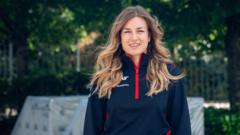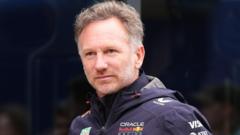Komatsu emphasized the team's commitment to selecting personnel based on capability rather than gender or nationality. The restructuring aims to elevate Haas's competitive edge, with the management acknowledging past weaknesses in trackside operations. As the first year Haas has budgeted to meet F1's financial cap, there is a distinct focus on building a robust team capable of achieving consistent performance moving forward.
Significant changes also include the hiring of Francesco Nenci as chief race engineer and Mark Lowe as sporting director, aiming to strengthen the technical oversight and decision-making during races. Haas is poised for a potentially transformative season, attempting to capitalize on last year's successes while facing heightened competition from other teams.
The team aims to distinguish itself not only by improving its standings in the constructors' championship but also by challenging assumptions regarding team structure and effectiveness in the sport's competitive landscape.
With these appointments, Haas positions itself at the intersection of innovation in team strategy and the movement towards inclusivity in Formula 1, setting a precedent for future generations in motorsport.
Significant changes also include the hiring of Francesco Nenci as chief race engineer and Mark Lowe as sporting director, aiming to strengthen the technical oversight and decision-making during races. Haas is poised for a potentially transformative season, attempting to capitalize on last year's successes while facing heightened competition from other teams.
The team aims to distinguish itself not only by improving its standings in the constructors' championship but also by challenging assumptions regarding team structure and effectiveness in the sport's competitive landscape.
With these appointments, Haas positions itself at the intersection of innovation in team strategy and the movement towards inclusivity in Formula 1, setting a precedent for future generations in motorsport.


















